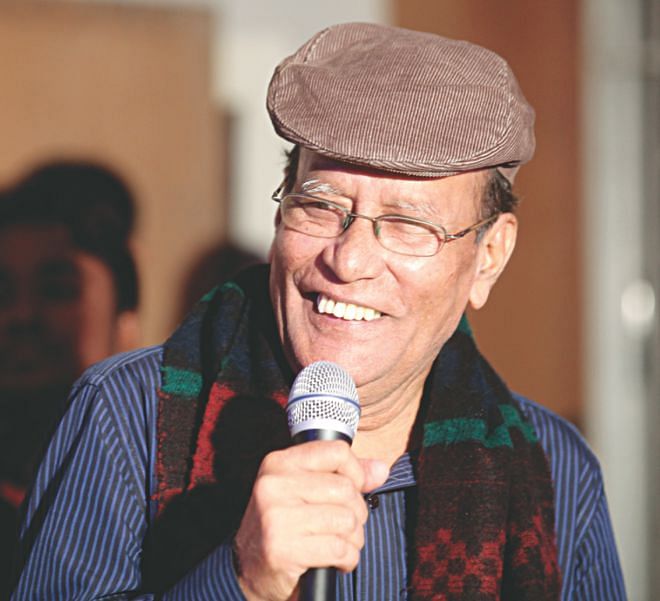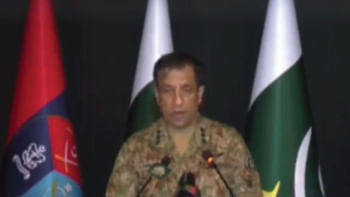Musings with Khurshid Alam

The talent hunt shows in the country are taking a great initiative, reinforcing the revival of songs many thought were long lost. The revival began, I believe, with young composers tinkering with the folk songs, and soon there were music lovers across the country once more humming the classics. It seems the worldwide telecast of the talent shows, where performers are singing not only folk, but also erstwhile-adhunik songs, have once more brought to light, not only the tremendous talent pool that we have but also the rich archive of songs," says popular adhunik singer of the '70s and '80s Khurshid Alam.
The discussion rapidly shifted to a range of topics during a short break at a concert held recently.
"Very few people know that my initial training was in Tagore songs," he said. "Born and brought up in old Dhaka, I come from an area where SM Parvez, popular singer Moslehuddin and other prominent people lived.
"At the weekly rehearsals held at Dhaka Shilpi Sangha headed by my uncle eminent lyricist Dr. Abu Hyder Sajedur Rahman AKA Dr. Mastana, I remember noted film actress Johorat Ara, eminent dancer Laila Hasan and others would join in regularly," remembers Alam.
"Adhunik song is the soul of my being.... and fittingly, my entrance to this world was almost by fate," he says. At the national level competitions of Education Week in 1961-62 in the erstwhile East Pakistan, Alam had won the first prize in Tagore songs, and was keenly looking forward to making his mark on the stage. However, at that time in 1965, Rabindra Sangeet was banned from the radio almost overnight. Considering his options, Alam decided to audition for adhunik (modern Bangla songs). And as the music world watched, Alam rose step by step to become one of the popular artistes of his time.
It was a golden era in Bangla music, when a flurry of artistes Syed Abdul Hadi, MA Hamid, Md Ali Siddiqui, Khondokar Faruq Ahmed, Mahmudun Nabi, Abdul Jabbar, Anwaruddin Khan, Najmul Huda Bachchu, Anjuman Ara Begum, Ferdousi Rahman, Sabina Yasmin and Shahnaz Rahmatullah were household names.
Alam says, "I was fortunate enough to have done more than 300 playbacks under the guidance of celebrated composers Subal Das, Ali Hossain, Azad Rahman and Satya Shaha."
"The music sessions with the music directors usually continued for hours. The studios at the radio office at Shahbagh and much later at Agargaon were the cultural hubs for the musicians. During this time the committed directors would sit together and discuss the latest compositions," he says. Competition amongst artistes and composers was intense, but 'healthy', according to Alam. "There was mutual respect all around, and in general, people were supportive of each other," he adds.
He remembers one incident that highlighted this feeling more than anything else. At that time Alam bagged a contract to sing the playback for “Agantuk”, the first of his countless playbacks in 1969. Such was the bond between artistes and directors that several directors turned up at the recording simply because as they said "It was our Khurshid's debut!"
"With such wholehearted support, I readily felt motivated to give my utmost effort in every song I recorded," he says. One of the songs in that film, “Bondi pakhir moton” is written by Dr. AH Sajedur Rahman and composed by Azad Rahman. Among other songs such as “Chonchol du noyoney bolona ki khujchcho”, “Tomar du hath chhuye sopoth nilam” and “Pitch dhala eyi path tarey” in the film “Shadharan meye” (composed by Robin Ghosh and written by Gazi Mazharul Anwar) were on everybody's lips before long.
Coming back to talent hunts he observes, "Listening to many such songs that were recorded ages ago with so much emotion, brings back memories. Songs can live on forever when they find a home in the hearts of the young generation. I only hope the young talents continue to practice their art no matter what the results of the talent shows. Only then, instead of having one winner at the end, you will have 140 million winners across the country and beyond."

 For all latest news, follow The Daily Star's Google News channel.
For all latest news, follow The Daily Star's Google News channel. 



Comments